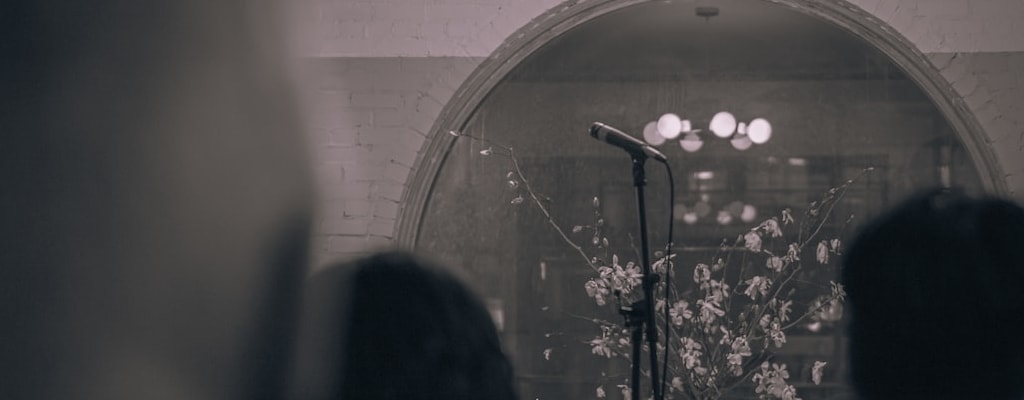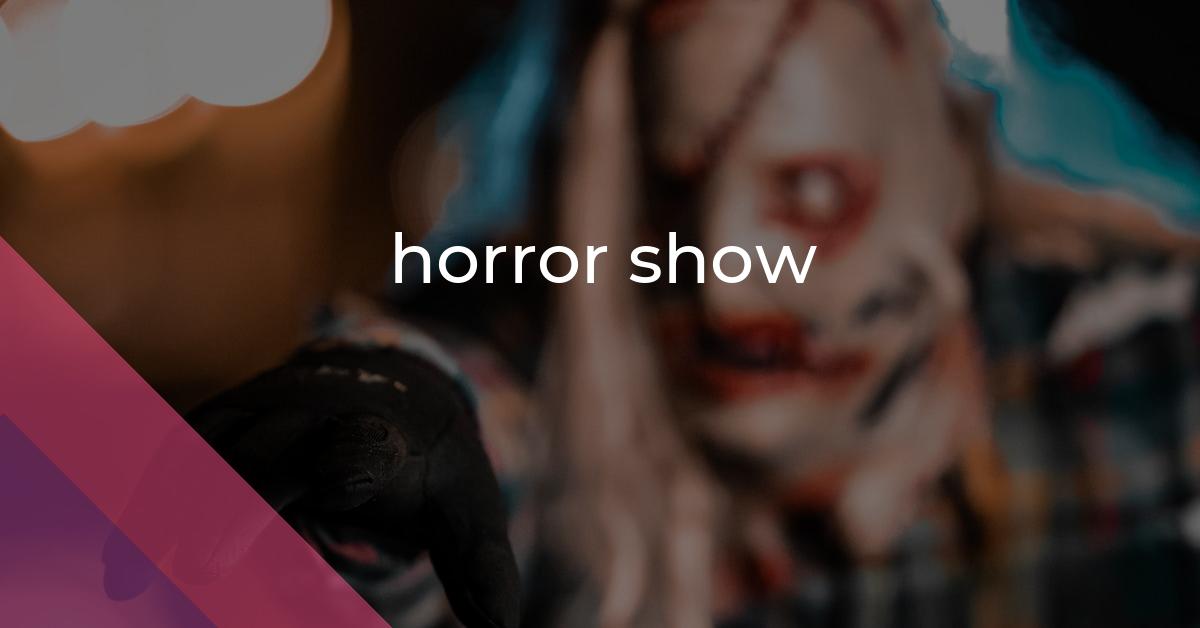horror show: Idiom Meaning and Origin
What does ‘horror show’ mean?
The idiom "horror show" is commonly used to describe a situation or event that is extremely unpleasant, horrifying, or disturbing.

Idiom Explorer
The idiom "parade of horribles" refers to a series of unpleasant or alarming events, situations, or possibilities that are described or predicted one after another. It emphasizes the negative aspects and potential consequences of a particular situation or decision.
An idiom used to describe someone who is in an emotional or mental state of extreme agitation, distress, or confusion.
The idiom "holy fuck" is an exclamation used to express extreme shock, surprise, or disbelief. It is a vulgar phrase meant to emphasize the intensity of the reaction.
The idiom "holy crap" is an expression of surprise or disbelief. It is used to emphasize astonishment or shock, often in response to an unexpected or extraordinary event. The phrase is considered informal and somewhat vulgar.
The idiom "hit the fan" is used to describe a situation where something goes terribly wrong or chaotic, often as a result of a secret or scandal being revealed. It implies a sudden and explosive response to the situation.
The idiom "hell to pay" means to face severe consequences or trouble for one's actions or decisions.
The idiom "hell on earth" refers to a situation or place that is extremely unpleasant, chaotic, or filled with suffering, resembling the horrors commonly associated with the concept of hell.
Unveiling the Frightening Origins
The idiom "horror show" is a commonly used phrase in the English language that has its origins in the world of horror movies. While its exact origins are uncertain, the idiom has become increasingly prevalent in contemporary language, particularly in American English.
When used metaphorically, "horror show" refers to a chaotic, disturbing, or nightmarish situation or event. It conveys a sense of extreme negativity and often describes events that elicit fear, revulsion, or shock.
The word "horror" in this idiom is derived from the Old French term "horreur," which can be traced back to the Latin word "horror" meaning "a shaking, trembling, or shuddering." This connection to physical sensations of fear and revulsion adds depth to the idiom's figurative meaning.
The idiom is typically used in casual or colloquial settings to succinctly describe an intense or distressing experience. It can be found in various forms of media, including literature, film, and online content. Its usage is not limited to a specific region or demographic, as it has become a universally recognized expression in the English language.
It is important to note that the idiom "horror show" should not be confused with the phrase "horror movie" or used interchangeably. While both relate to the genre of horror, the idiom specifically emphasizes the overwhelming or distressing nature of an experience, whereas a horror movie refers to a film within the horror genre.
The metaphorical usage of the idiom "horror show" allows for a concise and evocative way to describe situations that elicit fear, revulsion, or shock. It captures the intensity of human experiences and serves as a reminder of the power of language to convey emotions and experiences.
One related idiom that shares a similar theme to "horror show" is "parade of horribles." This idiom is used to describe a situation or sequence of events that involves a series of terrible or undesirable outcomes. Just as a horror show depicts a singular disturbing event, a parade of horribles represents a chain of horrifying events or circumstances.
Another related idiom that connects to the sense of negativity conveyed by "horror show" is "bad news." This expression is used to denote something that is unfortunate, negative, or disappointing. It can be used to describe a wide range of situations or events that elicit a sense of dismay or dissatisfaction. When something goes wrong, and it seems like everything is falling apart, it can feel like a "horror show" and deliver bad news.
Similarly, the idiom "hit the fan" connects to the chaotic and distressing nature of a "horror show." When a situation "hits the fan," it means that it has reached a point of critical mass or has become unmanageable. This idiom captures the idea that things have escalated to a level of chaos and negativity that is reminiscent of a horror show.
The idiom "hell on earth" relates to the extreme negativity conveyed by a "horror show." It is used to describe a situation or place that is nightmarish, unbearable, or extremely unpleasant. Just as a horror show presents a disturbing and distressing scenario, "hell on earth" amplifies the sense of negativity and emphasizes the dire nature of a situation or experience.
The idiom "horror show" and its related expressions "parade of horribles," "bad news," "hit the fan," and "hell on earth" all capture the essence of chaos, negativity, and distress. These metaphoric idioms serve as powerful tools for describing intense experiences and evoke strong emotional responses from the listener or reader. Through their varied usage and widespread recognition, these idioms have become an integral part of the English language, offering us a unique and vivid way to express and understand the darker side of human experiences.
Example usage
Examples of how the idiom horror show can be used in a sentence:
- The movie last night was a complete horror show - the special effects were terrible and the acting was even worse.
- After the storm, the neighborhood was a total horror show with trees uprooted and houses damaged.
- Trying to fix my car was a horror show - nothing seemed to go right and I ended up making it worse.
More "Entertainment" idioms



